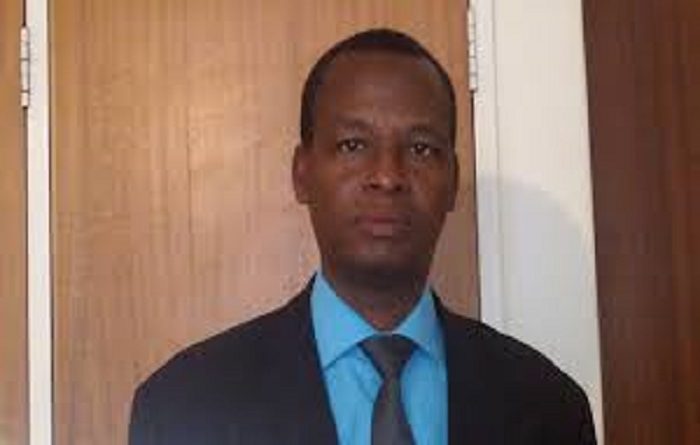Adaptation Fund approves new funding windows, raises annual resource mobilisation
The Adaptation Board has established new funding windows for large innovation grants and Enhanced Direct Access to provide vulnerable countries with further opportunities to access funds needed on the ground.
The Board, at the conclusion of its second virtual meeting last week also greenlighted several new grants – including technically clearing its first concrete adaptation project in the Republic of The Gambia and a small innovation grant to foster innovative technologies for improving water and food security in Antigua and Barbuda.
The Board raised its annual resource mobilization target to US$ 120 million for both 2020 and 2021, up from the previous US$ 90 million target of the last two years. When approving the elevated target, the Board emphasized addressing increased adaptation funding needs among developing countries impacted by the COVID-19 pandemic and also fostering and increasing adaptation actions through the Fund’s strategic pillars of Action, Innovation, and Learning and Sharing to help meet the urgency and enormity of climate change.
Demand for the Fund continues to be high, reflecting the scale of countries’ needs. The Board received record highs in new proposals for its intersessional review in June 2020 and its March 2019 meeting, and has an active project pipeline of about US$ 280 million. The Board further approved a record US$ 188 million in new projects last year.
The new funding windows will offer countries additional opportunities above and beyond their regular country project funding allocations to help meet the dual challenges of climate change and COVID-19, and build broader resilience against climate change, environmental, health and economic risks.
“I am very proud and pleased to see the Adaptation Fund Secretariat and Board continue to adapt and deliver to the most vulnerable communities that it serves in innovative ways, especially during these challenging times,” said Ibila Djibril, Chair of the Board. “These new funding windows will provide developing countries with additional means on top of our regular funding channels to adapt and build resilience to climate change, while fostering sustainable development.”
The 35th Board meeting was held virtually Oct 26-28
The Board’s approval of the pilot Enhanced Direct Access (EDA) funding window for national implementing entities (NIEs) will further empower entities to directly identify and fund local adaptation projects. EDA builds on the Fund’s pioneering Direct Access modality, which fosters country ownership in adaptation. The Fund has pioneered EDA already by piloting it in several countries through locally led adaptation projects, including in South Africa, Costa Rica, the Federated States of Micronesia and Antigua and Barbuda, and this will build on those by creating an explicit window for NIEs to submit proposals of up to US$ 5 million per country for EDA projects.
In approving a process for providing funding for innovation in adaptation through large grants up to US$ 5 million each for the Fund’s accredited national, multilateral and regional implementing entities, the Board expanded its available opportunities for countries through the Fund’s Innovation Facility – which is already providing small innovation grants (up to US$ 250,000 each). The first call for proposals for large innovation grants will make US$ 30 million available for them in early 2021.
Importantly, both the EDA and innovation funding windows will not count against the Fund’s country cap, so entities will be eligible for these additional opportunities beyond countries’ regular project funding limits.
At the same time, the Board decided to further define and elaborate on the Fund’s vision for innovation, including review criteria, risk appetite, focus on particularly vulnerable groups, countries and sectors, and innovation in the context of COVID-19. A task force composed of Board members representing developing and developed countries was established during the meeting to help guide the work.
“Since the Adaptation Fund began formally serving the Paris Agreement nearly two years ago, the Fund has made great strides to expand its offering of grants through its strategic pillars of Action, Innovation and Learning, to help meet the scale and urgency of climate change, and contribute to building broader resilience within the context of COVID-19, as well,” said Mikko Ollikainen, Manager of the Fund. “These new funding windows for Enhanced Direct Access and Innovation are part of that and will open additional opportunities for vulnerable countries and communities to develop new approaches and tools in adaptation, and accelerate more local actions on the ground that are urgently needed.”
In presiding over his final meeting as Chair, Mr. Ibila Djibril praised the Board and Secretariat for their extensive engagements at COP 25 in Madrid last December, and for adapting early on in the pandemic to hold the first Board meeting in early April, approve the first projects virtually among climate funds, lead virtual project visits and Direct Access workshops for its NIEs, and develop several products to advance knowledge in adaptation. Mr. Djibril will turn over the Chair seat after completing his term next March to newly elected incoming Chair Mr. Mattias Broman of Sweden, who currently serves as Vice-Chair.
Among other decisions made during the busy three-day meeting, the Board decided to approve blanket no-cost one-year extensions for projects that have been delayed due to COVID-19, and allow flexibility for implementing entities to reallocate up to 20 percent of their project budgets to further adapt to the impacts of COVID-19 to help achieve project goals. It noted the Fund’s responses in adapting to COVID-19 in creative ways and taking early adaptive measures to mitigate its impacts on projects. It encouraged countries to consider COVID-19 impacts when developing future projects in order to achieve broader resilience that reflects their national recovery plans.
The Board decided to continue to actively engage with the Green Climate Fund to enhance structured complementarity, with a view to exploring concrete steps to advance options for fund-to-fund arrangements.
It further held a CSO Dialogue, in which country members of the AF NGO Network discussed impacts of COVID-19 on several projects, as well as successes in adapting to the pandemic.
Additionally, the Board exchanged views on potentially lifting the country cap, but agreed more details need to be discussed in the next meeting before possible decisions can be taken.
In addition to creating the new funding windows for EDA and innovation, new grants greenlighted by the Board include:
a US$ 10 million rural integrated adaptation and resilience building project in the Republic of The Gambia to be implemented by the World Food Programme (WFP), technically cleared and temporarily waitlisted due to the balance required between projects by multilateral implementing entities and those by others;
a US$ 250,000 innovation grant to the Direct Access NIE, the Department of Environment in Antigua and Barbuda to foster innovative technologies for improved water availability and food security, also technically cleared and pending only reaccreditation;
a US$ 80,000 project formulation grant (PFG) to WFP approved to further develop a regional project concept to strengthen adaptive capacities of vulnerable communities in El Salvador and Honduras; and
a US$ 20,000 PFG to WFP approved to further develop a regional pre-concept that would strengthen resilience of vulnerable communities in Sri Lanka and India.




